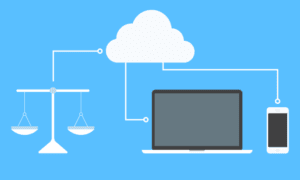In recent years, we’ve seen a significant increase in cybercrime in Australia, and healthcare practices are among those commonly targeted. It’s easy to see why – healthcare practices have access to sensitive patient information that could be valuable to hackers. The move towards greater digitization of healthcare systems and records, including a move to online practice management software, can give cybercriminals even more opportunities to get their hands on private information.
Here are a few tips to help you keep your patient data safe and secure.
- Use cloud-based online practice management software. With cloud software, you’re protected against cyber threats with the most up-to-date technology and in-house security expertise. When data is transferred to the cloud it’s encrypted, which means it’s harder for hackers to get access. Compared to more traditional on-premise software, this leads to a more secure solution. With the cloud, you don’t have to worry about your server, as this is all managed for you by the provider. Your data will be stored in a remote data center with state-of-the-art security for extra protection.
- Keep access limited. It’s important to have clear processes and restrictions around who can access your software and systems. Think about what happens to ex-employees, third-party vendors, and anyone else who might have access to your systems when they don’t need it, and take steps to make sure the only people who have access are those who need it to do their jobs.
- Teach your team about staying safe online. Your employees don’t need to become cyber security experts, but it is a good idea to teach them the basics of how to recognize a dodgy download or a phishing email. Make sure they know the basic internet safety rules, and that they can come to you if they have any concerns or if anything seems strange.
- Have a clear process to manage incidents. Have you thought about what you would do if a hacker gained access to your systems? In these cases, fast action can often make all the difference to the final outcome. Make sure you are prepared and know what to do if there’s an incident, including data backup processes and how you will get your practice up and running again if something happens.
- Create secure logins and passwords. It might sound obvious, but it’s surprising how many practices don’t take simple steps to protect their data. Things like shared logins, passwords written on post-its beside the computer, or generic passwords can all leave your systems vulnerable. Make sure your staff has their own individual logins and they change their passwords on a regular basis. You may also want to consider implementing extra security like two-factor authentication to help keep your patient data extra safe.
With cybercrime on the increase, and hackers getting smarter and more strategic, it’s important to be proactive about keeping your patient data safe. Nothing is guaranteed, but by educating yourself and your team, limiting access to those who need it, and taking steps to create secure passwords and logins, you can reduce the chances of your practice falling victim to cybercrime.



































